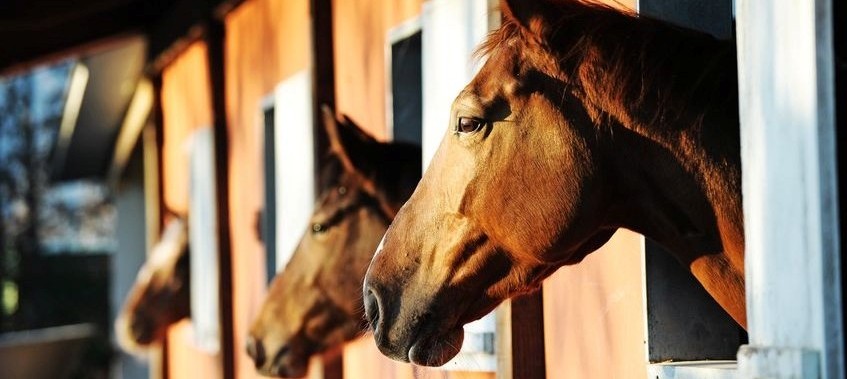Horses mirror the emotions of people working with them.
By Steve Moran
Nancy Schier Anzelmo and Paula Hertel are colleagues and friends. They are both well known in the senior living industry where they have worked as consultants for about 20 years. They both have a passion to improve assisted living and dementia care. They also both love and own horses. These combined enthusiasms led them to create a new joint endeavor, which they’ll launch later this month – The Connected Horse Project.
This groundbreaking project and pilot research study is the first of its kind and explores how guided engagement with horses might help people living with dementia, as well as their care partners, to maintain purpose, confidence, and connection. They are actively seeking to fund the program through gofundme.com/connectedhorse. The project is undertaken with the guidance of Stanford University and Stanford University’s Red Barn Equine Leadership Program.
The Challenge
According to 2015 data from the Alzheimer’s Association, over 5.3 million Americans have a diagnosis of dementia and that number is expected to grow by 40% over the next decade. “Understandably there is a huge push to find a cure,“ Paula stated. “But we’ve also done a great job improving early diagnosis. So until a cure is found, we have thousands of people labeled with a diagnosis (200,000 of whom are under the age of 65) wondering ‘now what’?
“We wanted to develop a program to support people living with young onset dementia and their care partners – spouses, adult children, other relatives, and friends – as they begin the journey of living with dementia,” Paula said. “We thought that equine-guided activities focusing on mindfulness, self-awareness, and verbal and nonverbal communication might work.”
Why Horses?
Horses are the most popularly used animals for therapy because they have the ability to work collaboratively and adapt to change. They are prey animals but have survived for over 50 million years by cooperating in herds. Horses behave similarly to human beings in social and responsive interactions, so it’s easy for people to connect with horses.
Horses also mirror the emotions of people working with them. They respond immediately, which gives immediate feedback. Paula pointed out, “You can’t push a 1200-pound animal around to get it to do what you want. Working with horses provides an easy way for people to understand that force may not be the best approach for getting someone to do something.”
Nancy added, “As equestrians, we know there’s a very real healing presence about horses. If we have a bad day, all we have to do is go out in nature, ‘be’ with our horses, relax, and just feel better. There are in-depth studies of the effects of equine work on the stress hormone cortisol, mostly with adolescents that show with horse therapy, there’s an almost immediate drop in cortisol levels.
The Goal
“We hope our project,” Nancy said, “is a way the person with dementia and their care partner can learn coping skills, have an outlet for engagement, and overcome stress which can help them deal with the road that’s ahead. And that’s what we’ll be looking for in our outcomes – reduced anxiety and depression with increased coping skills. Then we’d be able to make it into a full research study funded by the National Institute of Aging, the National Institute of Health, and Stanford as the leader in pioneering new programs.”
That goal is what led them to Jacqueline Hartman, co-founder and administrator of the Stanford Red Barn Leadership Program and, through Nancy’s relationship with the Alzheimer’s Association, to Dolores Gallagher Thompson, who will serve as the project’s principal investigator. They also brought in Liz Landsverk, M.D., as Study Medical Advisor. Elke Tekin who co-founded The ElderHub, a virtual community providing education and elder care resources for San Francisco Bay Area residents, will assist them.
Here’s how the project works:
-
There is no cost to participate in this program
-
No prior experience with horses is required
-
Participants do not ride the horses; they engage with the horses from the ground
-
Coordinators and Curriculum Developers Nancy and Paula are looking for volunteer participants – people age 70 and younger with a diagnosis of early onset dementia and their primary care partner
-
Participants can expect to spend a total of 15 hours on the project within a 60-day period
-
1 hour for initial phone interview
-
2 hours for barn tour and pre-workshop surveys
-
two 5-hour workshops with the horses
-
2 hours for post-program phone interview and surveys
Those interested in participating can click here to complete an inquiry card and learn more about the program and eligibility; and, again, to help fund the project, visit gofundme.com/connectedhorse.








